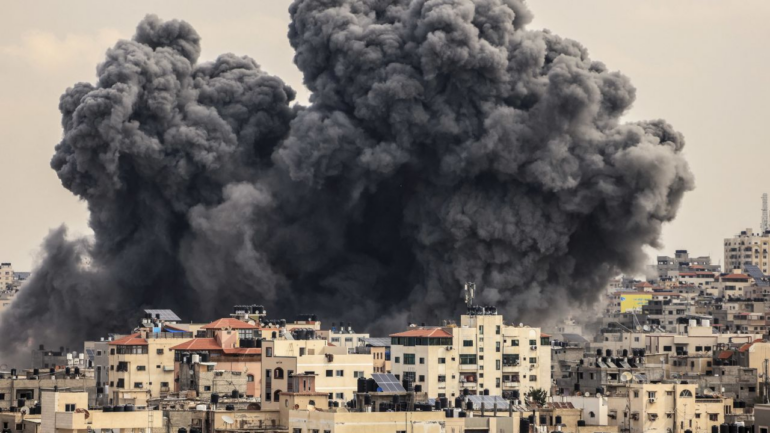In the heart of the Middle East, the Gaza Strip is gripped by a humanitarian crisis of unimaginable proportions. Since October 7, a relentless series of Israeli strikes has claimed the lives of nearly 3,000 people, a significant portion of whom were innocent children.
These strikes, in retaliation for Hamas attacks in Israel, have left more than 12,500 individuals wounded, their lives forever altered by the scars of war. The situation in the occupied West Bank is equally dire, with 61 Palestinians killed and 1,250 others injured in the crossfire.
The roots of this tragedy lie in the longstanding conflict between Israel and Hamas. The Israeli military, vowing to annihilate the Hamas group, responded forcefully to the attacks, leading to widespread devastation.
In an attempt to curtail Hamas, Israel tightened its blockade on Gaza, resulting in severe shortages of essential supplies. Food, water, and medical aid are now scarce, with UN agencies warning of an imminent humanitarian catastrophe.
International efforts are underway in this dire scenario in order to provide aid and broker a peace agreement.
The United States, a staunch ally of Israel, is taking a proactive role. President Joe Biden’s imminent visit to Israel signifies unwavering support, with Secretary of State Antony Blinken emphasizing the importance of Israel’s security.
Simultaneously, the US is working diligently to ensure humanitarian assistance reaches those in need, even as it deploys military assets to deter the conflict’s escalation.
China, another global power, has stepped in, sending its special envoy to the Middle East. China’s involvement is crucial, especially given its relationship with Iran, a key Hamas supporter. Beijing’s influence could play a pivotal role in calming the conflict, a hope echoed by the international community. Japan, as the current president of the Group of 7 developed nations, has also extended a helping hand, providing $10 million in humanitarian aid for Gaza.
In the midst of these diplomatic efforts, the UN Security Council was called upon to pass a resolution for a humanitarian ceasefire. However, the attempt faced obstacles, with Russia’s drafted resolution falling short of the necessary votes. This setback highlights the complexity of the situation, where political maneuverings often overshadow the urgent need for peace.
Meanwhile, Egypt, a regional heavyweight, is attempting to send aid through the Rafah border crossing, the sole lifeline not controlled by Israel. Yet, Israeli strikes have damaged critical infrastructure, impeding the delivery of essential supplies. The situation is dire, with UN agencies stating that Gaza’s food stocks will last only a few more days. The call for unimpeded access and safe passage for humanitarian supplies into Gaza grows louder, resonating with the desperate cries of the people trapped in the conflict zone.
Against this backdrop, the Organisation of Islamic Cooperation (OIC) has convened an urgent meeting in Jeddah, Saudi Arabia. Caretaker Foreign Minister Jalil Abbas Jilani will represent Pakistan at this crucial gathering. The OIC meeting holds promise, as it provides a platform to discuss the Gaza crisis and the plight of its besieged civilians. Jilani is expected to voice Pakistan’s grave concerns about the dire humanitarian situation in Gaza, emphasizing the urgent need for a ceasefire, the lifting of the siege, and immediate relief assistance for the people.
The cries of the Gazan people echo across the world, pleading for an end to the violence that has shattered their lives. Families have been torn apart, homes reduced to rubble, and dreams extinguished in the blink of an eye.
As the international community grapples with diplomatic intricacies, the urgent need for action cannot be overstated. The global gaze turns towards the leaders gathered at the OIC meeting, hoping that their deliberations will pave the way for a lasting peace, bringing solace to the suffering and healing to a wounded land.
In the face of tragedy, humanity’s collective conscience is tested. Will the world stand idly by, or will it rise to the occasion, extending a helping hand to those in the throes of despair? The answer lies in the actions taken in the coming days, as nations unite to alleviate the suffering of the innocent and strive for a future where peace prevails over conflict, and hope triumphs over despair.



